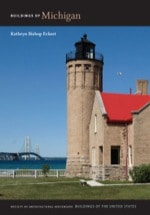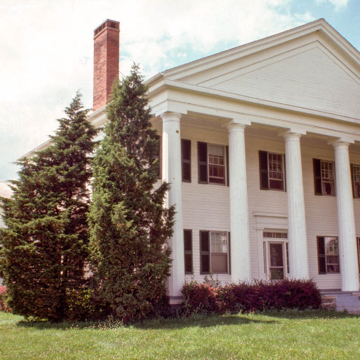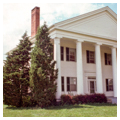You are here
Gordon Hall (Judge Samuel William Dexter House)
Gordon Hall is one of the most imposing wooden Greek Revival houses in Michigan. From its hilltop site above the Huron River, the house literally presides over the steepled village of Dexter to the east. It was built for Samuel William Dexter (1792–1863), a Boston-born and Harvard-educated politician and newspaperman who was chief justice of Washtenaw County from 1826 to 1833. Named for Dexter's mother, Catherine Gordon Dexter, Gordon Hall has a massive hexastyle Greek Doric portico with somewhat attenuated columns across its pedimented facade. The plan consists of an almost-square central two-story section with flanking one-and-a-half-story wings. Flanking long-side porches have similar but shorter Doric columns. In spite of the recent application of aluminum siding and the division of the interior into apartments, Gordon Hall is important because it shows the context and environment within which such grand temple-front houses were built.
In 1950 Katherine Dexter McCormick, granddaughter of Judge Dexter, donated the house to the University of Michigan, and, in turn, the university divided it into faculty apartments. In 2001, when the university announced plans to sell the house and its sixty-seven-acre site, the Dexter Area Historical Society and the Save Gordon Hall Committee rescued the house from a developer. With funds from an intense campaign, the society acquired the property. It intends to restore the house for a museum and conference center.
Writing Credits
If SAH Archipedia has been useful to you, please consider supporting it.
SAH Archipedia tells the story of the United States through its buildings, landscapes, and cities. This freely available resource empowers the public with authoritative knowledge that deepens their understanding and appreciation of the built environment. But the Society of Architectural Historians, which created SAH Archipedia with University of Virginia Press, needs your support to maintain the high-caliber research, writing, photography, cartography, editing, design, and programming that make SAH Archipedia a trusted online resource available to all who value the history of place, heritage tourism, and learning.


















